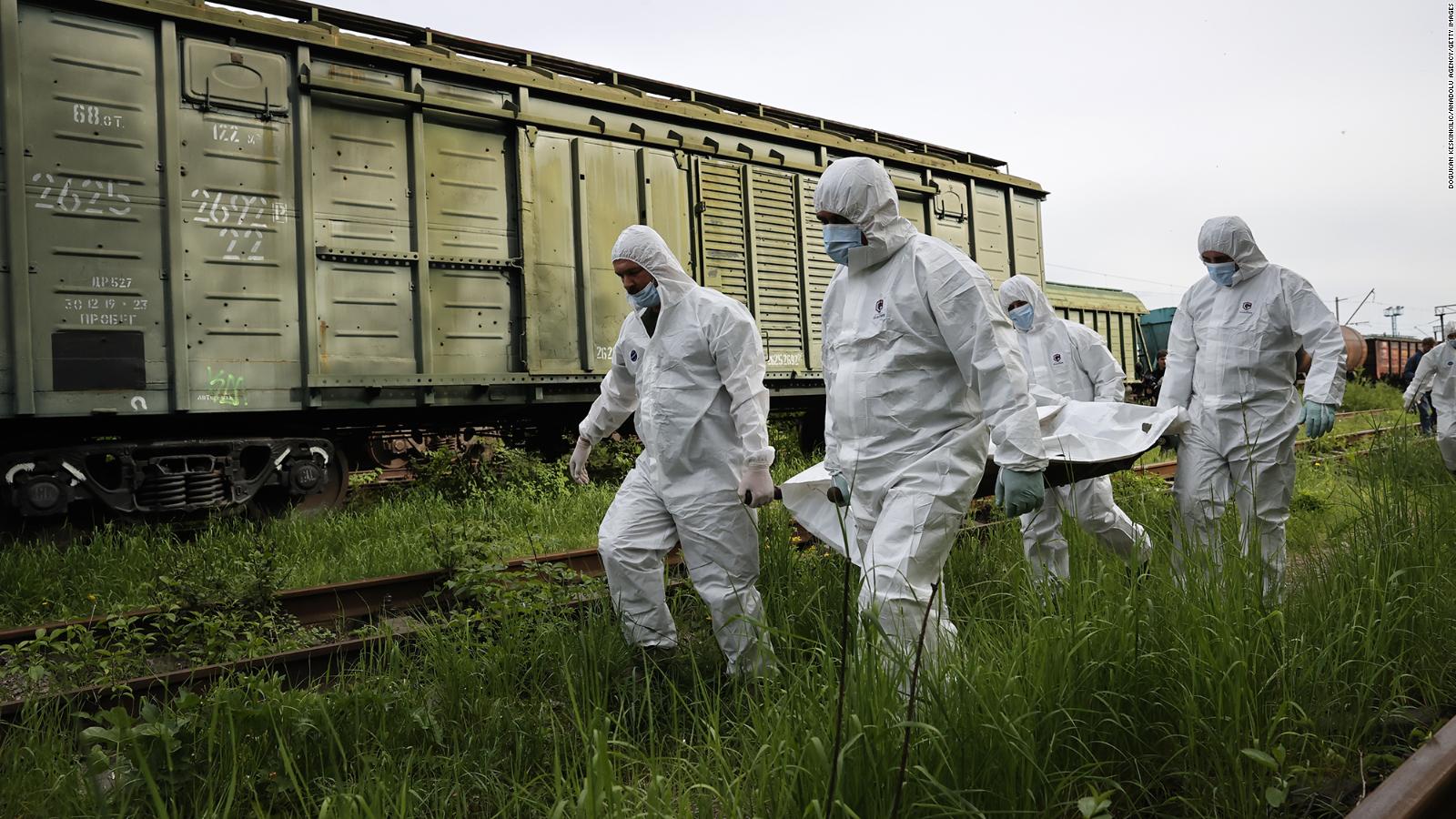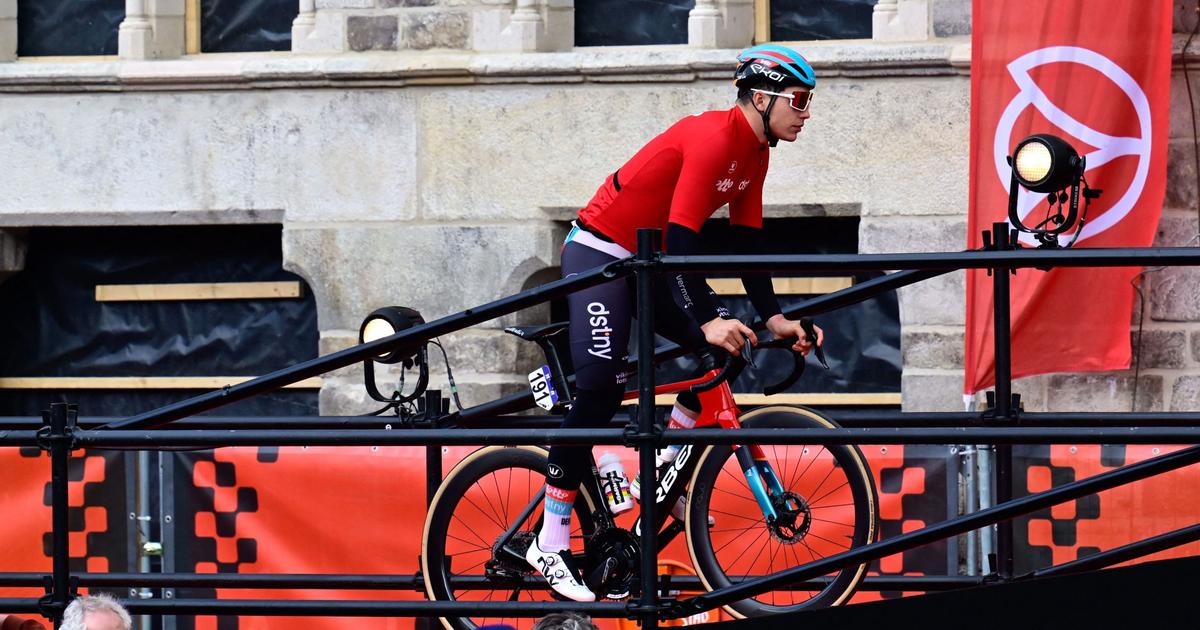Russian bombing in Severodonetsk, Ukraine 3:03
(CNN) --
Turn back the clock to February 23, the day before Russia launched its all-out invasion of Ukraine, and one might be tempted to guess that Ukrainian President Volodymyr Zelensky's days in office were numbered. .
After all, Russia's army outspent Ukraine's by about ten to one.
Moscow enjoyed a double advantage over Kyiv in ground forces;
and the nuclear-armed power had ten times the planes and five times the armored fighting vehicles of its neighbor.
A visibly angry President of Russia, Vladimir Putin, had appeared on television just days earlier, delivering an incoherent historical monologue that made it clear that he expected nothing less than regime change in Kyiv.
What is Vladimir Putin, tyrant or democrat?
A historian and academic analyzes it
The Kremlin leader seemed to be betting that Zelensky would leave his capital, just as Afghanistan's US-backed president had left Kabul only months before, and that Western outrage would subside, albeit with the temporary pain of new sanctions.
100 days later, any plans Putin had for a victory parade in Kyiv are on indefinite hold.
Ukrainian morale did not collapse.
Ukrainian troops, equipped with modern anti-tank weapons supplied by the US and its allies, devastated Russian armored columns;
Ukrainian missiles sank the guided missile cruiser Moskva, the pride of Russia's Black Sea Fleet;
and the Ukrainian planes remained in the air, against all odds.
advertising
Ukraine's President Volodymyr Zelensky in the Kharkiv region on May 29.
In late March, Russia's military began withdrawing its battered troops from around the Ukrainian capital, claiming they had shifted their focus to capturing the eastern Donbass region.
Three months after its invasion, Russia no longer seems to be aiming for a short, victorious war in the Ukraine, nor does it seem capable of achieving one.
The forecast problem
Does this mean that Russia is losing?
It's tempting to take a snapshot of the situation on any given day and draw broad conclusions.
The Ukrainians have managed to kill Russian generals at an astonishing rate;
Moscow has been forced to reorganize its military command after the initial disarray;
and Russian casualties, elusive as the official figures are, are surprisingly high.
Officials carry away the bodies of Russian soldiers killed in Kyiv on May 13.
But Russia now controls a crescent of Ukrainian territory stretching from around Kharkiv, Ukraine's second largest city, through the separatist-controlled cities of Donetsk and Luhansk and west to Kherson, forming a bridge linking the Crimean peninsula (forcibly annexed by Russia in 2014) with the Donbas region.
The main focus of Russia's effort is now in the Donbas region, where things have settled into a war of attrition.
Recent fighting has focused on Severodonetsk, an industrial city where Ukrainian forces control the last bit of the eastern Luhansk region.
Ukrainian troops have ceded most of Severodonetsk to the Russians.
The fall of the city will be a symbolic loss, but one that military analysts say spares Ukrainian forces from facing a protracted and likely lost siege.
"Kyiv could have committed more reserves and resources to the defense of Severodonetsk, and its failure has drawn criticism," the US-based Institute for the Study of War said in a recent analysis.
Smoke and dirt photographed over Severodonetsk on June 2, 2022.
"Both the decision to avoid committing more resources to save Severodonetsk and the decision to withdraw were strategically sound, if painful. Ukraine must manage its more limited resources and focus on retaking critical ground rather than defending ground whose control will not determine the outcome." of war or the conditions for the resumption of war".
Amid the offensive in Severodonetsk, Oleksandr Motuzianyk, a spokesman for the Ukrainian Defense Ministry, said Russian forces were now "trying to encircle our troops in the Donetsk and Luhansk regions" and regrouping to launch an offensive in the direction of Sloviansk, a strategic city that could be shaping up to be the focus of the next pivotal battle.
The battles in eastern Ukraine are fought in much more open terrain than the more densely populated urban environment around Kyiv.
That explains the urgency with which the Ukrainians have requested heavier weaponry, in particular artillery systems that can hit targets at longer ranges, from the United States and its allies.
President Joe Biden announced Wednesday that the US will send more advanced rocket systems, including High Mobility Artillery Rocket Systems with munitions that can launch rockets around 72 kilometers, a far greater range than anything Ukraine has ever seen. shipped to date.
A destroyed Russian tank in the Kyiv region on April 16.
That's good news for Kyiv, but Russia's offensive in the east unfolds as international media attention on Ukraine shifts somewhat from the headlines.
And that may be what Putin is counting on, perhaps aware that soaring energy costs and rising consumer prices, both exacerbated by the war in Ukraine, are more likely to focus public opinion (and boost election results) in the United States and elsewhere.
Zelensky's role in the war
Putin may also be counting on short periods of diplomatic attention.
This is the same Russian leader who doubled down on his support for Syrian President Bashar al-Assad in 2015 after Damascus suffered a series of defeats.
That war, now entering its 12th year, has continued even as the world's attention has shifted to Ukraine.
In that sense, Zelensky has been one of Ukraine's greatest assets in information warfare.
He made a series of virtual appearances before parliaments around the world, while reminding other world leaders that they might be inclined to placate Putin by pressing Ukraine to cede territory that it is the Ukrainian people, not him, who should decide the outcome.
In Zelensky's appearances with wounded soldiers and civilians, the Ukrainian leader takes selfies and projects a warm, humane and modest leadership style.
That contrasts with the Russian leader's only public visit to a military hospital: Putin, wearing an oversized white lab coat, met wounded soldiers and officers who stood rigid before his commander-in-chief.
Ukraine exhibits destroyed Russian tanks and vehicles 2:12
But Putin, who has crushed all internal political opposition and effectively controls his country's airwaves, does not face the same internal pressure as Zelensky.
Nikolai Patrushev, Putin's Security Council chief, said in recent comments that Russian forces are not "chasing deadlines" in Ukraine, suggesting that Putin has a much more open timetable for his war in Ukraine.
The Ukrainians, by contrast, fear international fatigue that will lead the international community to pressure their government to make concessions to Putin.
"You have the clocks, but we have the time."
That saying, sometimes attributed to a captured Taliban fighter, summed up America's dilemma in fighting the war in Afghanistan, a grudging acknowledgment that insurgencies operated across different political horizons and timelines, and that insurgents needed only to survive, not defeat, the technologically superior in military power of the United States.
To reuse that phrase, the deciding factor in Ukraine may be who has the time: a Russian dictator likely to hold power until he dies, or a Ukrainian people fighting for their national survival.
Vladimir Putin Volodymyr Zelensky







